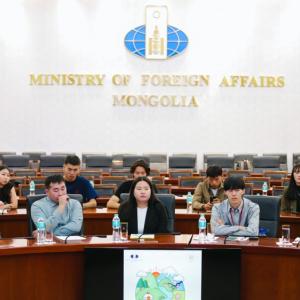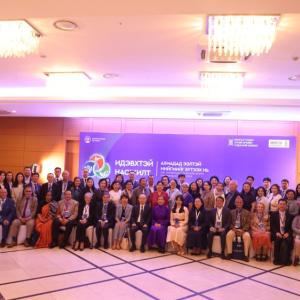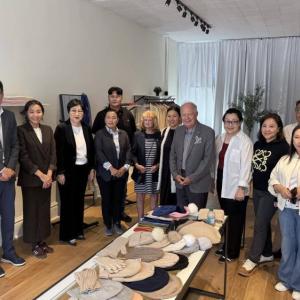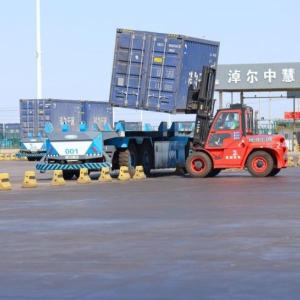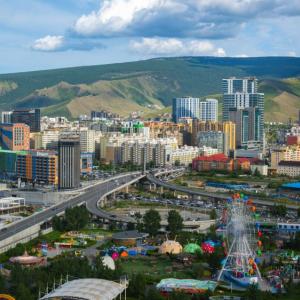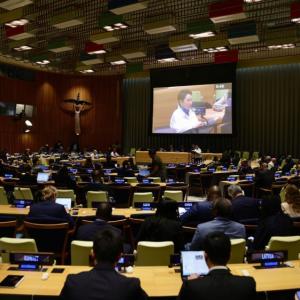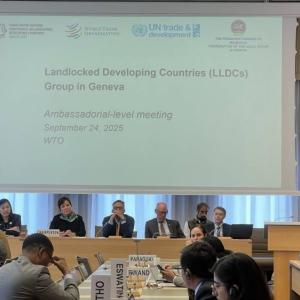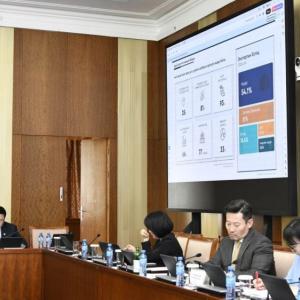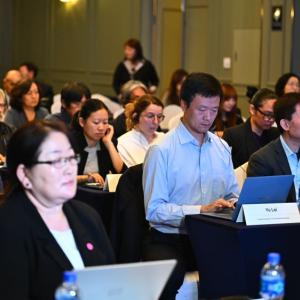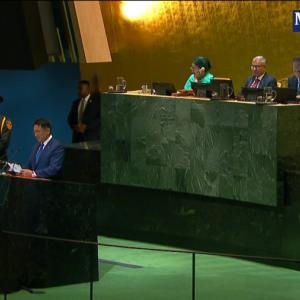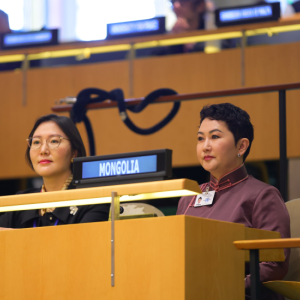T. Jambaltseren: ‘International and National Standards Must Be Properly Enforced’
Society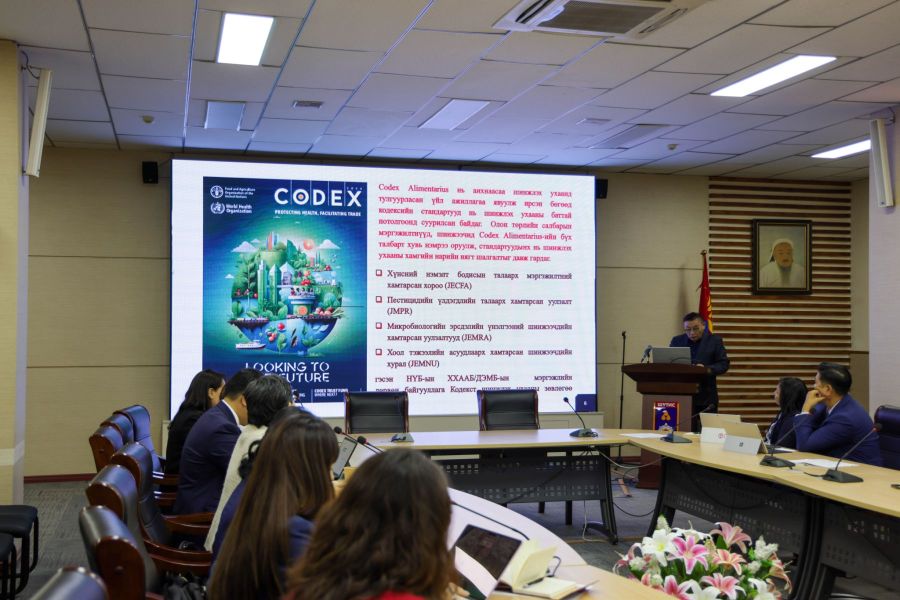
Ulaanbaatar, October 2, 2025 /MONTSAME/. World Food Day is celebrated by over 150 countries for the 44th time, and in Mongolia for the 23rd time.
On this occasion, the “Food Safety - Standard and Quality Certification” academic conference was held for the ninth year. The conference was jointly organized by the Ministry of Food, Agriculture and Light Industry (MOFALI), the Food and Agriculture Organization of the United Nations Representative Office in Mongolia, the Mongolian Food Industry Association, the Research and Development Center for Food, Agriculture and Light Industry, and the School of Food, Light Industry and Design of the Mongolian University of Science and Technology.
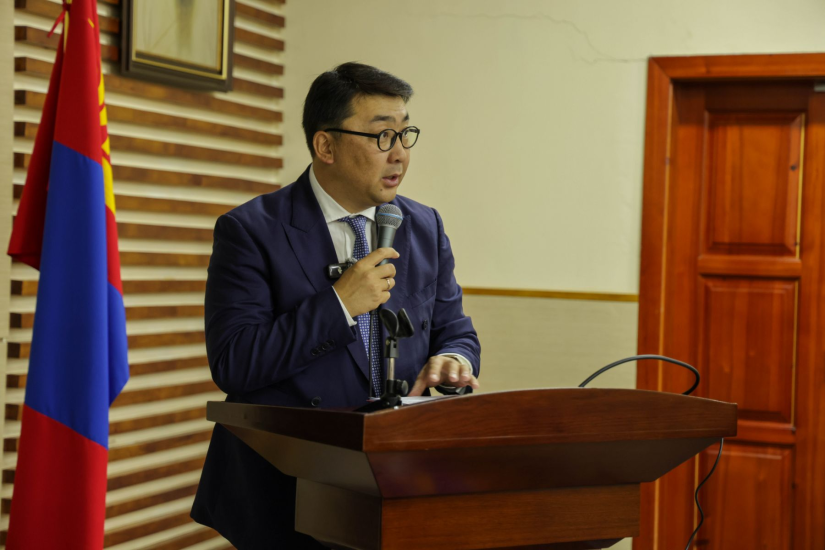 Opening the ceremony, the State Secretary of
the MOFALI, Jambaltseren Tumur-Uya, said, “Food safety is the foundation of
health, quality of life, and supporting the sustainable development of the food
sector. Therefore, the effective enforcement of international and national
standardization systems is indispensable in food safety. Thus, contributions by
students, researchers, and specialists in ensuring food safety are significant
in implementing state policies and decisions based on science and jointly determining
the future development trends of the sector.”
Opening the ceremony, the State Secretary of
the MOFALI, Jambaltseren Tumur-Uya, said, “Food safety is the foundation of
health, quality of life, and supporting the sustainable development of the food
sector. Therefore, the effective enforcement of international and national
standardization systems is indispensable in food safety. Thus, contributions by
students, researchers, and specialists in ensuring food safety are significant
in implementing state policies and decisions based on science and jointly determining
the future development trends of the sector.”
Participating researchers at the conference discussed and presented
findings on the standards of food safety, microbial resistance, monitoring of
school lunches, revision of wheat flour standards, and bioactive compounds in
wild cranberries, along with other studies. Proposals were made to enhance food
traceability and certification systems, align them with global standards,
conduct regular sanitation inspections, and safeguard consumer rights.
Moreover, studies on hygiene and quality assurance systems, laboratory testing,
and risk assessment were also introduced
According to research, one in ten people worldwide suffers from foodborne illness annually. Strengthening food quality and certification systems is considered essential not only for public health but also for social security.
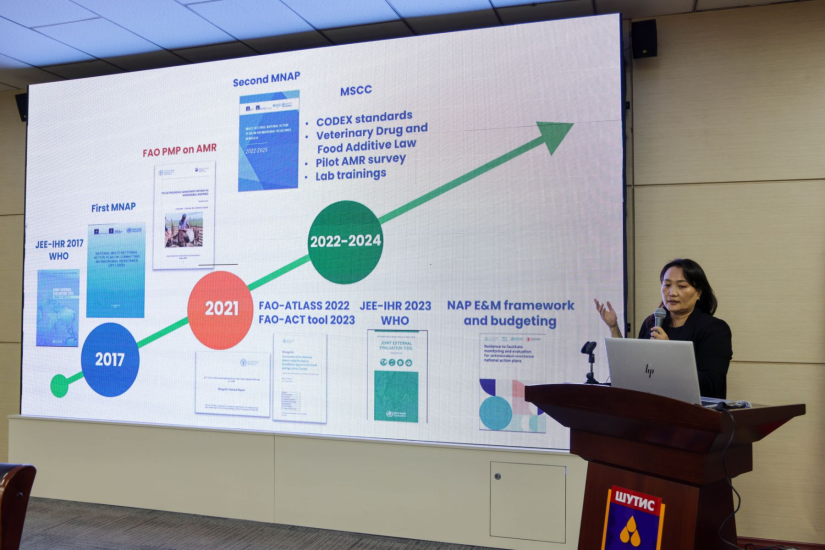

 Ulaanbaatar
Ulaanbaatar



